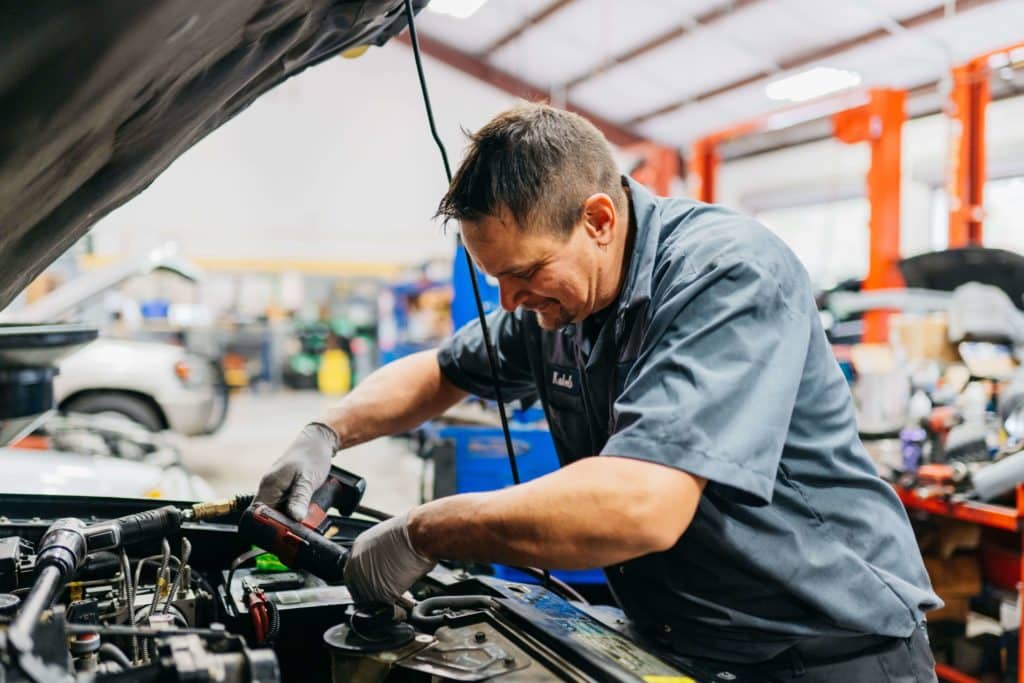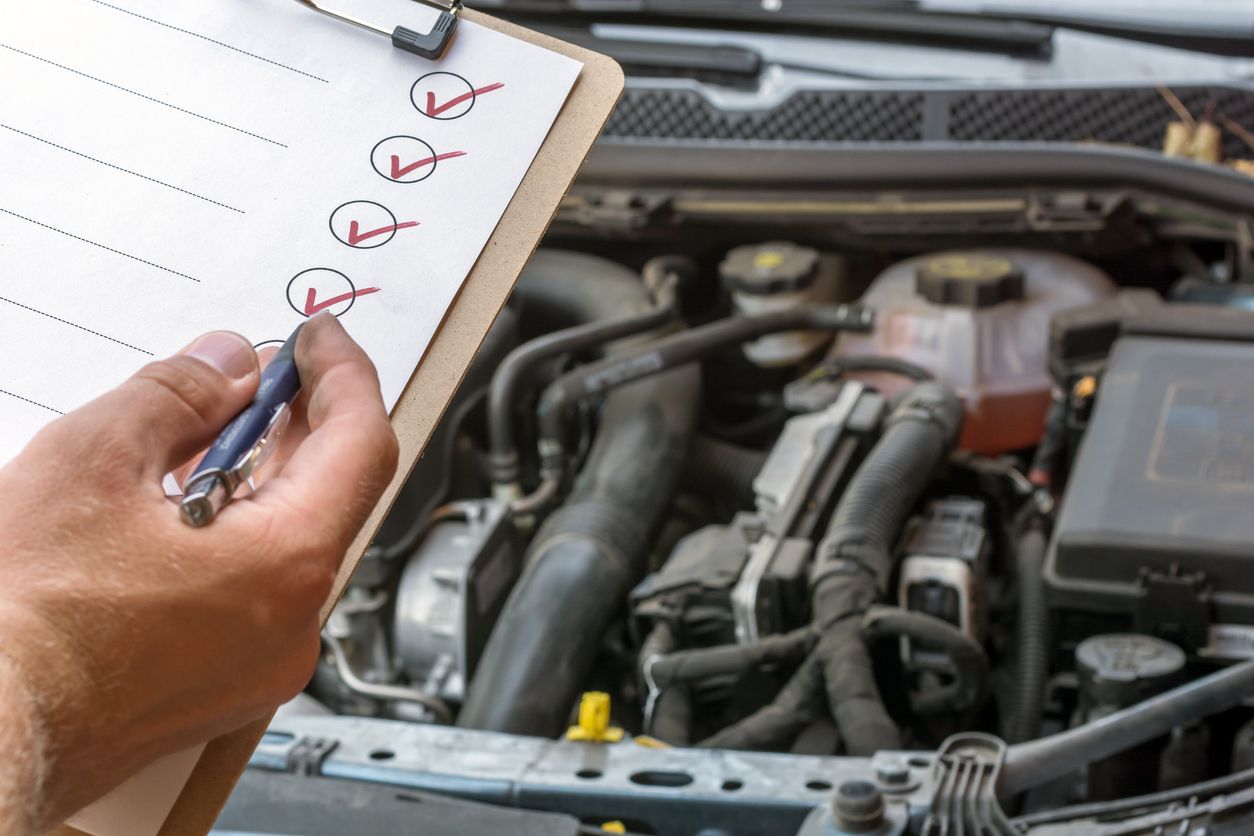All Categories
Featured
When your cars and truck gets too hot, it can feel like a major emergency, but staying tranquil and complying with the best actions can stop serious engine damages and aid get you back when driving securely. In this message, we'll explore what to do if your automobile overheats and provide preventative pointers to decrease the threat of overheating in the future.
If Your Car Overheats,What to Do. Draw Over to a Safe Location The very first and crucial action if your automobile begins to get too hot is to draw over to a risk-free place as soon as feasible. Switch on your threat lights and direct your automobile to the shoulder or into a car park. Keeping your vehicle running while it's overheated can create severe damage to the engine, so it's critical to shut the engine off right away.
Let the Engine Cool Down Once you have actually safely stopped, permit the engine to cool. You should never ever try to open the radiator cap while the engine is still hot, as the launch of steam or warm coolant can trigger burns. Wait at the very least 15-20 minutes to enable the engine temperature level to go down to a safer level before proceeding.
![]()
Check the Coolant Level After the engine has actually cooled, inspect the coolant degrees by examining the tank or radiator. Top it off with a mix of coolant and water (as defined by your automobile's manufacturer) if it's low. Always use caution when opening up the coolant tank, as pressure may have accumulated.
Look for Visible Leaks While you wait for the engine to cool down, aesthetically check the radiator, pipes, and coolant storage tank for any kind of visible leaks or fractures. A dripping radiator or tube is an usual source of overheating. It's better to call a tow solution than danger driving better and causing extra damage. if you discover a significant leak.
Reboot the Engine After permitting the engine to cool down and making certain the coolant is covered off, begin the engine and monitor the temperature scale. If the temperature level continues to increase swiftly, it's ideal to close the engine off and require roadside aid or a tow to the nearest technician.
![]()
Just How to avoid Overheating in the Future. Routinely Examine Coolant Degrees Among the easiest means to stop overheating is by preserving the best level of coolant. Over time, coolant can vaporize, so frequently examine the coolant levels in the storage tank. Low coolant degrees can trigger the engine to get too hot rapidly, so top it off as needed.
Check the Radiator The radiator plays a critical role in maintaining the engine cool. Periodically inspect the radiator for any clogs, dust, or debris that could obstruct air movement. If you discover any type of indications of damages, such as corrosion or leakages, have it fixed or changed asap.
Replace the Thermostat and Water Pump A malfunctioning thermostat or water pump is a common root cause of overheating. The thermostat controls the flow of coolant, while the water pump distributes it via the engine. If either component is damaged, it can protect against correct cooling. When necessary., have your mechanic evaluate these components frequently and change them.
Flush the Air conditioning System Over time, coolant can degrade and become inefficient, causing a buildup of particles in the system. Purging the cooling system every 30,000 miles, or as recommended in your vehicle's handbook, assists to eliminate any kind of sludge or build-up and ensures the cooling system is working correctly.
Monitor the Problem of the Tubes The tubes in your vehicle's cooling system can wear or split in time. Check the hoses for any indications of wear, such as bulging, splits, or leakages, and replace them if required. Protecting against coolant leaks can go a lengthy method in avoiding overheating.
![]()
Drive Responsibly Hostile driving, such as increasing rapidly or driving at high speeds, places extra strain on your engine and its cooling system. Attempt to drive at modest rates, specifically on hot days or when driving on steep inclines, to minimize the opportunities of getting too hot.
Avoid Overloading Your Car Lugging extreme weight in your automobile places tension on the engine and air conditioning system. Constantly bear in mind your automobile's weight limit, particularly if you're transporting hefty loads, towing a trailer, or driving fars away in heat.
Verdict. A getting too hot auto can be a frightening experience, but understanding how to respond and avoid it can save you time, cash, and possible engine damage. Always examine your coolant degrees, evaluate vital components like the radiator, thermostat, and hoses, and comply with a regular upkeep timetable. By remaining on top of your automobile's air conditioning system, you can decrease the threat of overheating and delight in a smoother, safer driving experience.
If Your Car Overheats,What to Do. Draw Over to a Safe Location The very first and crucial action if your automobile begins to get too hot is to draw over to a risk-free place as soon as feasible. Switch on your threat lights and direct your automobile to the shoulder or into a car park. Keeping your vehicle running while it's overheated can create severe damage to the engine, so it's critical to shut the engine off right away.
Let the Engine Cool Down Once you have actually safely stopped, permit the engine to cool. You should never ever try to open the radiator cap while the engine is still hot, as the launch of steam or warm coolant can trigger burns. Wait at the very least 15-20 minutes to enable the engine temperature level to go down to a safer level before proceeding.

Check the Coolant Level After the engine has actually cooled, inspect the coolant degrees by examining the tank or radiator. Top it off with a mix of coolant and water (as defined by your automobile's manufacturer) if it's low. Always use caution when opening up the coolant tank, as pressure may have accumulated.
Look for Visible Leaks While you wait for the engine to cool down, aesthetically check the radiator, pipes, and coolant storage tank for any kind of visible leaks or fractures. A dripping radiator or tube is an usual source of overheating. It's better to call a tow solution than danger driving better and causing extra damage. if you discover a significant leak.
Reboot the Engine After permitting the engine to cool down and making certain the coolant is covered off, begin the engine and monitor the temperature scale. If the temperature level continues to increase swiftly, it's ideal to close the engine off and require roadside aid or a tow to the nearest technician.

Just How to avoid Overheating in the Future. Routinely Examine Coolant Degrees Among the easiest means to stop overheating is by preserving the best level of coolant. Over time, coolant can vaporize, so frequently examine the coolant levels in the storage tank. Low coolant degrees can trigger the engine to get too hot rapidly, so top it off as needed.
Check the Radiator The radiator plays a critical role in maintaining the engine cool. Periodically inspect the radiator for any clogs, dust, or debris that could obstruct air movement. If you discover any type of indications of damages, such as corrosion or leakages, have it fixed or changed asap.
Replace the Thermostat and Water Pump A malfunctioning thermostat or water pump is a common root cause of overheating. The thermostat controls the flow of coolant, while the water pump distributes it via the engine. If either component is damaged, it can protect against correct cooling. When necessary., have your mechanic evaluate these components frequently and change them.
Flush the Air conditioning System Over time, coolant can degrade and become inefficient, causing a buildup of particles in the system. Purging the cooling system every 30,000 miles, or as recommended in your vehicle's handbook, assists to eliminate any kind of sludge or build-up and ensures the cooling system is working correctly.
Monitor the Problem of the Tubes The tubes in your vehicle's cooling system can wear or split in time. Check the hoses for any indications of wear, such as bulging, splits, or leakages, and replace them if required. Protecting against coolant leaks can go a lengthy method in avoiding overheating.

Drive Responsibly Hostile driving, such as increasing rapidly or driving at high speeds, places extra strain on your engine and its cooling system. Attempt to drive at modest rates, specifically on hot days or when driving on steep inclines, to minimize the opportunities of getting too hot.
Avoid Overloading Your Car Lugging extreme weight in your automobile places tension on the engine and air conditioning system. Constantly bear in mind your automobile's weight limit, particularly if you're transporting hefty loads, towing a trailer, or driving fars away in heat.
Verdict. A getting too hot auto can be a frightening experience, but understanding how to respond and avoid it can save you time, cash, and possible engine damage. Always examine your coolant degrees, evaluate vital components like the radiator, thermostat, and hoses, and comply with a regular upkeep timetable. By remaining on top of your automobile's air conditioning system, you can decrease the threat of overheating and delight in a smoother, safer driving experience.
Latest Posts
Learn How to Cut Costs on Car Maintenance with Montclare Auto Repair’s Special Deals
Published May 30, 25
1 min read
Uncover Cut Costs on Car Maintenance with Montclare Auto Repair’s Exclusive Deals
Published May 27, 25
1 min read
Discover WyHy FCU – Top Benefits for Your Future
Published May 24, 25
1 min read
More
Latest Posts
Learn How to Cut Costs on Car Maintenance with Montclare Auto Repair’s Special Deals
Published May 30, 25
1 min read
Uncover Cut Costs on Car Maintenance with Montclare Auto Repair’s Exclusive Deals
Published May 27, 25
1 min read
Discover WyHy FCU – Top Benefits for Your Future
Published May 24, 25
1 min read